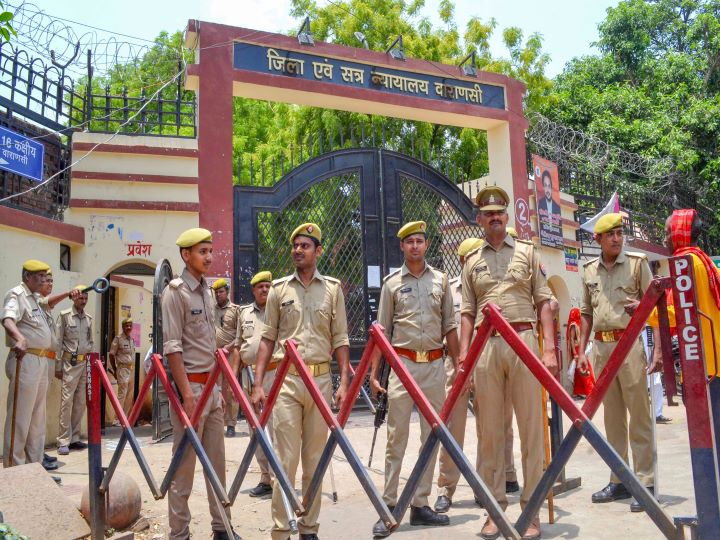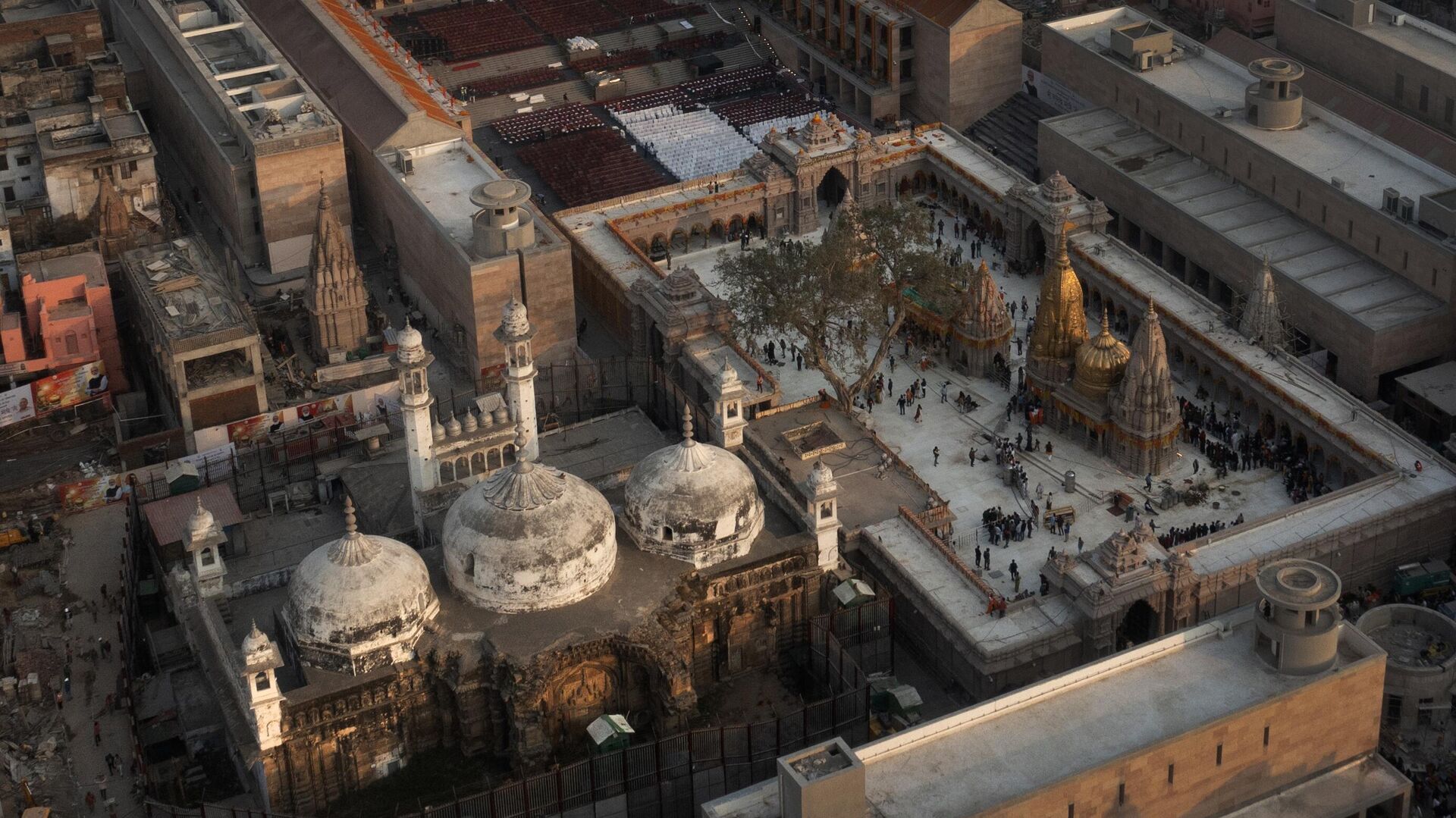The Archaeological Survey of India (ASI) submitted its report on the scientific survey of Gyanvapi mosque premises to the Varanasi Court, which could potentially impact the ongoing Kashi Vishwanath Temple-Gyanvapi Mosque dispute.

Hindu worshippers prayed before the Court to make the report public and requested directions for the July 21 order of the Varanasi District Judge to determine if the mosque was built over a pre-existing Hindu temple structure.
“Gyanvapi can’t be considered a temple or mosque”, says Allahabad HC
The Allahabad High Court has stated that the Varanasi Civil Court will determine the religious character of the Gyanvapi Complex, which was established on August 15, 1947, based on both documentary and oral evidence. The court’s decision will determine whether the complex can be classified as a temple or mosque.

With this, the Anjuman Intezamia Masajid Committee’s arguments opposing a total of five cases of the Gyanvapi title issue were REJECTED by a bench of Justice Rohit Ranjan Agrawal. The Court further noted that a Masjid compound may have a Hindu or Mulsim character, and that decision cannot be made at the issue-framing stage.
Allahabad High Court Upholds the 2021 ASI Survey Order
The Allahabad High Court upholds the 2021 ASI Survey Order, stating that the Gyanvapi Complex cannot be a temple or mosque until the Varanasi Court determines its religious character.

The Allahabad High Court has stated that the Varanasi Civil Court will determine the religious character of the Gyanvapi Complex, which was established on August 15, 1947, based on both documentary and oral evidence. The court’s decision will determine whether the complex can be classified as a temple or mosque. Justice Rohit Ranjan Agrawal ruled that the Places of Worship Act 1991 does not bar Hindu worshippers and deities from filing civil suits in the Varanasi Civil Court for the right to worship in the Gyanvapi mosque and the restoration of the temple at the disputed location.
Civil Suits Not Barred By Places Of Worship Act
The Allahabad High Court ruled today in the Kashi Vishwanath-Gyanvapi land title dispute cases that the Places of Worship Act of 1991 does not apply to several civil suits filed by Hindu worshippers seeking the restoration of a temple at the disputed location that is pending before the Varanasi Court and the right to worship in the Gyanvapi mosque.

With this, the Anjuman Intezamia Masajid Committee’s arguments opposing a total of five cases about the Gyanvapi title issue were REJECTED by a bench of Justice Rohit Ranjan Agrawal. The Court further stated that a Masjid compound may have a Hindu or Mulsim character, and the decision about this could not be made at the issue-framing stage.












Comments 1